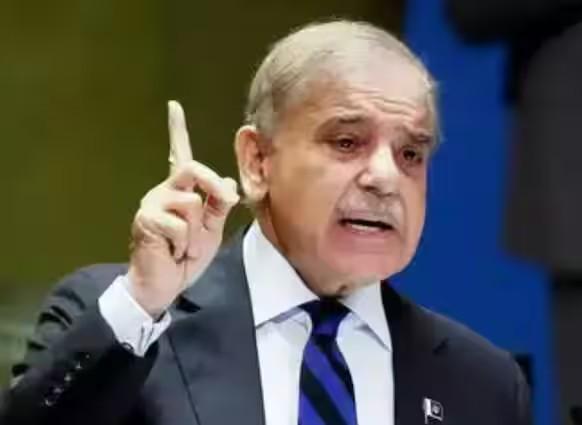
Pak has been going to other countries with ‘begging bowl’, admits Pak PM Sharif
In a candid statement, Pakistan Prime Minister Shehbaz Sharif recently admitted that his country has been relying heavily on foreign aid and assistance, often approaching its allies with a “begging bowl” in hand. The Pakistani PM made these remarks while speaking with the country’s armed forces in Quetta, highlighting the pressing economic struggles that Pakistan is currently facing.
According to reports, Sharif stated that Pakistan’s allies, including China, Saudi Arabia, Turkey, Qatar, and the United Arab Emirates, no longer expect the country to approach them with a begging bowl. Instead, they now expect Pakistan to engage with them on trade and commerce, reflecting a significant shift in the country’s diplomatic dynamics.
Pakistan’s economic woes are well-documented, with the country struggling to stabilize its currency, manage its debt, and stimulate economic growth. As of 2024, Pakistan owes a staggering $29 billion to China, a significant portion of which is owed to the Belt and Road Initiative (BRI), a massive infrastructure project aimed at connecting China with the rest of the world.
The country’s economic struggles have been exacerbated by a range of factors, including a decline in foreign investment, a widening trade deficit, and a lack of foreign exchange reserves. The government’s recent decision to increase fuel prices and impose a tax on mobile phone users has only added to the public’s discontent.
Sharif’s remarks come at a time when Pakistan is seeking to diversify its economy and reduce its reliance on foreign aid. The country has been working to improve its trade relationships with its neighbors, including India, and has launched initiatives aimed at promoting domestic investment and entrepreneurship.
However, despite these efforts, Pakistan’s economic challenges remain significant. The country’s debt-to-GDP ratio stands at over 90%, a level that is unsustainable in the long term. The government has been trying to negotiate with the International Monetary Fund (IMF) to secure a bailout package, but talks have stalled due to disagreements over the terms of the deal.
Sharif’s admission that Pakistan has been relying on foreign aid is a significant departure from the country’s traditional narrative of being a self-sufficient nation. For decades, Pakistan has been proud of its independence and sovereignty, and has often been critical of countries that rely heavily on foreign aid.
However, in recent years, Pakistan has been forced to swallow its pride and seek assistance from its allies in order to stay afloat. The country’s economic struggles have been exacerbated by a range of factors, including the impact of climate change, a decline in agricultural production, and a lack of investment in key sectors such as energy and infrastructure.
Despite the challenges, Sharif remains optimistic about Pakistan’s future prospects. In his remarks, he emphasized the country’s potential for growth and development, and highlighted the need for cooperation and collaboration with its allies.
“Pakistan is a country with immense potential,” Sharif said. “We have a young population, a strong military, and a rich cultural heritage. We need to work together to overcome our challenges and build a brighter future for ourselves and for generations to come.”
Sharif’s statement has been widely welcomed by economists and analysts, who have long argued that Pakistan needs to adopt a more sustainable approach to economic development. By acknowledging the country’s reliance on foreign aid, Sharif has taken a significant step towards addressing Pakistan’s economic challenges head-on.
As Pakistan navigates its economic struggles, it is crucial that the government continues to prioritize economic reforms and diversification. By reducing its reliance on foreign aid and promoting domestic investment, Pakistan can create a more sustainable and prosperous future for its citizens.
In conclusion, Pakistan PM Shehbaz Sharif’s candid admission that his country has been relying on foreign aid is a significant step towards addressing Pakistan’s economic challenges. By acknowledging the country’s reliance on foreign aid, Sharif has highlighted the need for cooperation and collaboration with its allies, and has emphasized the importance of promoting economic reforms and diversification.





